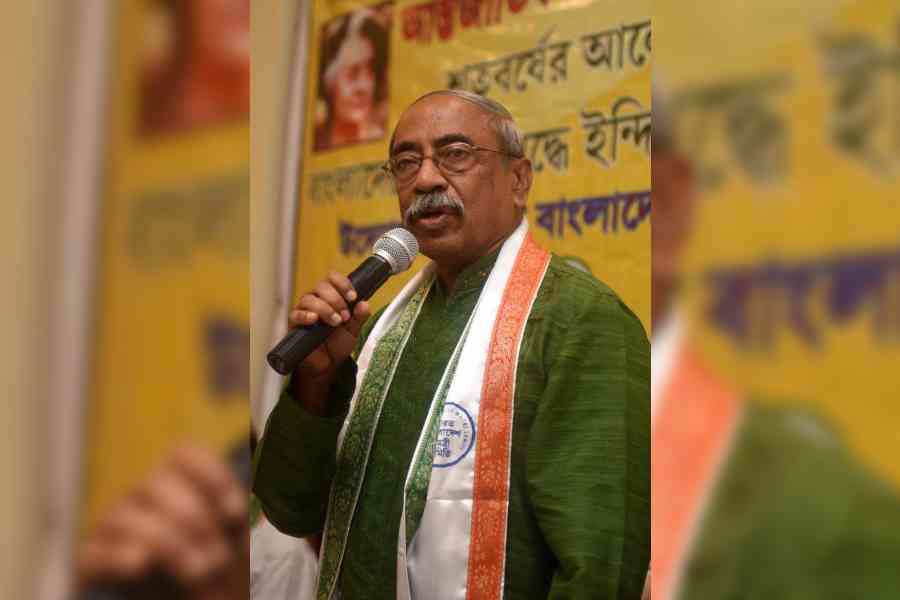On a day Bangabandhu Sheikh Mujibur Rahman’s statue was vandalised and his Dhanmundi home — a national museum — was set on fire, questions on whether the regime after Hasina would forget the father of the nation and his fight to free the country from the clutches of Pakistan began doing the rounds. The Telegraph spoke to Shahriar Kabir, filmmaker, writer and a progressive voice in favour of a secular and democratic Bangladesh on some of the issues facing the country after Hasina.
Q: Some secular and liberal people in Bangladesh, most of whom were Hasina supporters, are scared today about a backlash. Are you worried?
Kabir: I am not at all scared. I took part in the country’s freedom struggle and fought against the Pakistani army. I was about 20 then and I should have died long ago. At 74, with one foot in the grave, why should I be afraid of dying?
I know that some people are trying to flee, but I will be the last person to run away from Bangladesh.
Q: Is it the victory of the students or that of the opposition forces like the BNP and the Jamaat-e-Islami, which backed the protesters?
Kabir: I will not call it a victory for the BNP and the Jamaat. It is the victory of the students, who led the movement. The student leaders said several times that they did not hit the streets to pursue any specific political agenda. And undoubtedly, it’s a setback for the Awami League. What happened in the country indicated that there was so much anger against the government.
Q: Now that an interim government is all set to take over, what are your concerns?
Kabir: My major concern is what happens to liberation war values on which Bangladesh was created. We have to see which way things move from here and a lot will depend on how the next government performs in ensuring that the basic principles of democracy and secularism are not tampered with. We will have to wait to see when peace returns. Everyone knows that our economy is in doldrums and it will take time and serious efforts to restore the economy.
Q: There are reports of attacks on minorities and Hindu temples. Do you fear the rise of Islamic fundamentalism?
Kabir: Over the years, there has been a rise of Islamist fundamentalism in Bangladesh. Radicalisation has grown due to political patronage from the BNP and the Jamaat-e-Islami. Here I must add that the Awami League also pampered radical forces by allowing them in the party ranks.
The attacks that are taking place are very unfortunate and I urge the armed forces and the new leadership to crackdown on vandals without any delay.
Q: You have always feared about the possibility of Bangladesh becoming a mini-Pakistan in the absence of the values of liberation war. What are your thoughts now?
Kabir: I reiterate that the values of the liberation war are at the core of Bangladesh and if those in power do not nurture these values, it won’t take much time for our country to become a mini-Pakistan. I am sorry to say that given the present situation, I don’t rule out any such possibility.










